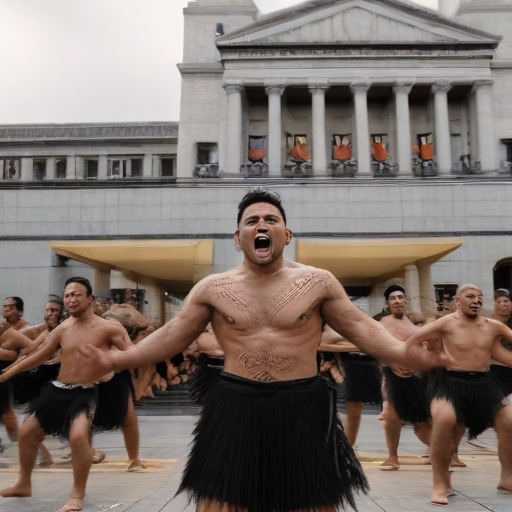New Zealand’s parliament faced a temporary suspension on Thursday when Maori members performed a haka in protest against a controversial bill that seeks to reinterpret the Treaty of Waitangi, a historic agreement signed in 1840 between the British Crown and more than 500 Maori chiefs. This treaty established the foundation for governance between the two parties and continues to influence legislative and policy decisions today.
In recent decades, court rulings and a Maori tribunal have broadened the rights of Maori communities. However, some critics argue that these developments have resulted in discrimination against non-Indigenous citizens. In response, the ACT New Zealand party, part of the ruling center-right coalition government, introduced a bill last week aimed at enshrining a more restrictive interpretation of the treaty in law.
On the day of the parliamentary vote, members of Te Pati Maori stood up and commenced the haka, a traditional Maori dance often associated with New Zealand’s rugby culture. The atmosphere became charged, leading to a brief suspension of parliamentary proceedings as audience members joined in, creating a vocal disruption that overwhelmed proceedings.
ACT New Zealand leader David Seymour stated that those opposing the bill are attempting to incite fear and division, asserting that his goal is to empower every individual in the country. The contentious legislation, which many Maori and their advocates view as a threat to Indigenous rights, has sparked widespread protests. Hundreds of demonstrators have begun a nine-day hikoi from the north of the country to Wellington, organizing rallies in their wake. An estimated 10,000 people participated in a recent march in Rotorua, welcomed by supporters waving the Maori flag.
Although the bill passed its initial reading, it is not anticipated to secure enough backing to be enacted into law. Coalition partners, the National Party and New Zealand First, are only supporting it through the first reading as part of their coalition agreement but have indicated they will not support it in subsequent votes, suggesting it is likely to fail.
This ongoing situation reflects a significant moment for Maori rights and representation in New Zealand, highlighting the passionate engagement of Indigenous communities in the political process and their unyielding commitment to preserving their heritage and rights. As the hikoi makes its way to the capital, it symbolizes unity and resistance among the Maori people, as they advocate for the recognition of their treaty rights.
